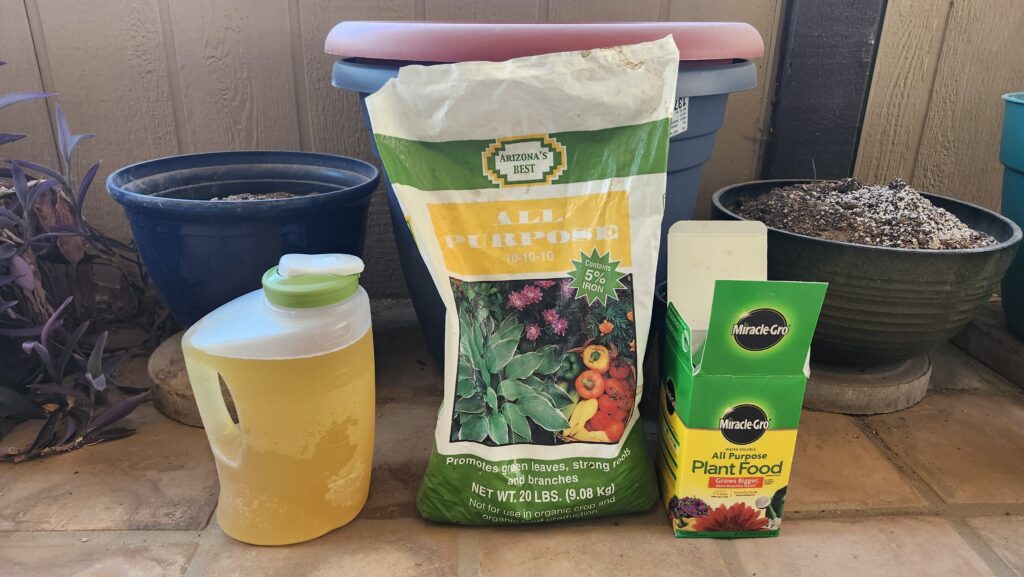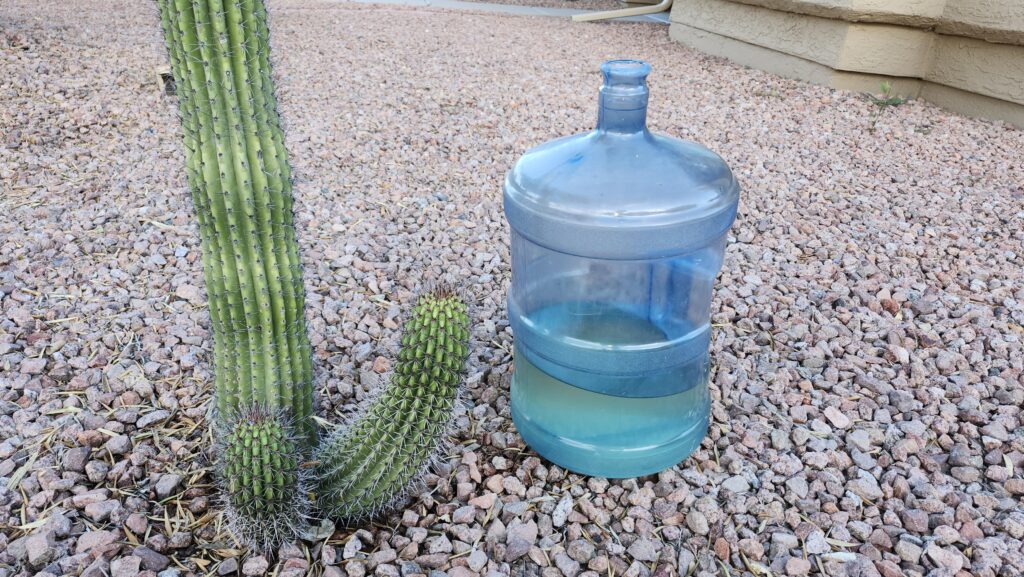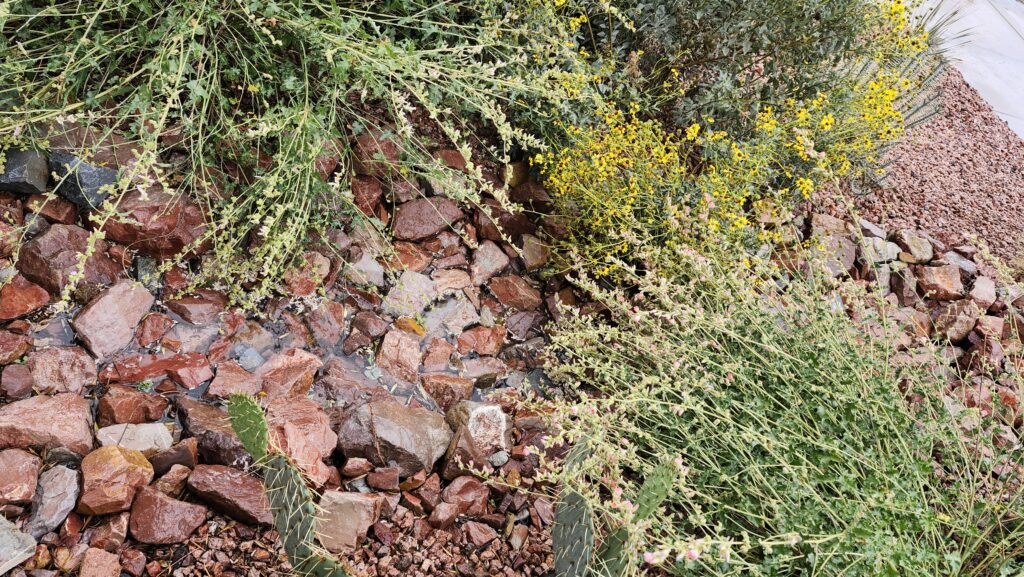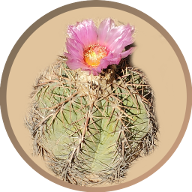
Can human urine be used as an alternative fertilizer? Artificial fertilizers are produced by combining nitrogen in the air with natural gas. This process consumes a lot of energy, as it involves high temperatures and pressures. For those of us looking for a more environmentally sustainable alternative, it might be useful to look at where nitrogen fertilizers come from in nature:
- Soil Microorganisms (Bacteria, Fungi, Algae)
- Lightning
- Ultra-Violet Rays
- Decomposed organic matter
- Animal feces and urine
Keeping your soil healthy will promote the microorganisms necessary for fixing nitrogen from the atmosphere. Plants in the legume family are known to have a symbiotic relationship with nitrogen fixing bacteria that adhere to the root hairs. Using decomposed organic matter is a great way to recycle nitrogen. In our gardens, we do this by composting or mulching. A thunderstorm fertilizes plants by converting atmospheric nitrogen into nitrates, washing them into the soil where they can be taken up by the plants.
https://az.pbslearningmedia.org/resource/nves.sci.earth.nitrate/lightning-produces-nitrates
One source of nitrogen recycling that is often lacking in a human dominated Earth is animal feces and urine. Our sewage systems treat human waste and then dump it back into waterways. This treatment takes a lot of water and energy. Both human feces and urine make great fertilizers. However, feces is more difficult to use because it carries dangerous pathogens. Urine is typically sterile in the body and only becomes contaminated by bacteria as it reaches our skin on the way out. It has also been found that storing urine for a couple of months produces ammonia, which sanitizes the lot.
I have used urine as a fertilizer in my garden for over a year now. Below, I share some of my findings.
Chemical Contents of Urine
The main chemicals constituents of human urine are in the table below. Urine is a great source of essential nutrients for plants including water, bioavailable nitrogen, phosphorus, and potassium. It also contains other nutrients such as chloride, sulfur, and magnesium. The only part that is concerning for plants is the sodium. Too much sodium can prevent plants from taking up water.
| Chemical | Urine (%) | Effect on Plants |
|---|---|---|
| Water | 95 | basic hydration |
| Urea | 2 | a common fertilizer with bioavailable nitrogen |
| Uric Acid | 0.05 | over time this breaks down into a bioavailable nitrogen fertilizer |
| Ammonium | 0.04 | a common fertilizer with bioavailable nitrogen |
| Phosphate | 0.27 | an essential plant nutrient with many benefit |
| Sulfate | 0.18 | an essential macronutrient for plant growth and development |
| Potassium | 0.15 | an essential plant nutrient with many benefits |
| Sodium | 0.35 | prevents plants from taking up water when present in large quantities |
| Chloride | 0.6 | a beneficial macronutrient, however it can be damaging in larger quantities |
| Magnesium | 0.01 | central component of chlorophyll |
| Creatinine | 0.075 | research shows positive effects on plant growth |
Collection and Storage
Most of the time, direct application of urine in the garden is not desirable. I keep several jugs dedicated for collecting and storing urine near the toilet. I typically use 1 gallon jugs with a well-sealing lid to prevent smells. A typical person produces 1-2 liters of urine per day. Depending on how long you are at home per day will determine what fraction of this you will collect. I usually collect about 1.5 gallons of urine in a week and apply it to different parts of the garden on a weekly basis. It is recommended to consider what medications you are taking, as some of these can be secreted in the urine and may be harmful if applied in the garden.
Application

Urine smells bad, and it’s not something you want to spray all over. The best method for applying it as a fertilizer is to use a deep soaking jug. Take a 1-5 gallon water jug and drill a tiny (5/64″) hole in the bottom, near the edge. Then fill the jug up with water and top it off with urine. I prefer dilution rates of 1 part urine to 5-10 parts water. This is good for desert plants that don’t need a lot of fertilizer.
The jug will slowly drain over the period of about an hour. This allows the water to slowly seep into the ground. With no pressurized spray, low evaporation, and significant dilution, the smell is not noticeable. Be careful if you apply this to potted plants, as the smell will be more noticeable than it would be in the ground.

Another option for adding urine to the garden without smell is to add it to a basin. Pour it into a basin during a rain, or with some additional water for dilution. The deep soak provided by the basin can be accessed by many nearby plants. A deep soak with water also helps to leech the salt below the root zone of the plants.
The last option for urine is the compost pile. Urine adds nitrogen to a compost pile that can help balance out your mix if you have lots of carbon rich brown items. If you compost paper, cardboard, leaves, or wood chips, the urine can help to balance out the pile and accelerate the breakdown.
Personally, I chose not to add urine directly to my vegetable gardens because of the yuck factor. But, there are lots of other people who do. You would especially want to avoid spraying any foliage in a vegetable garden.
